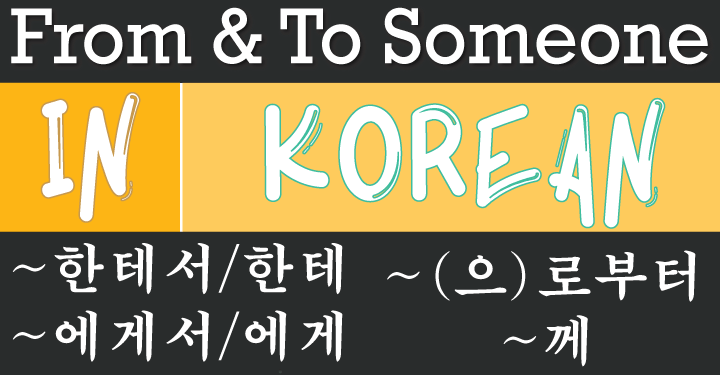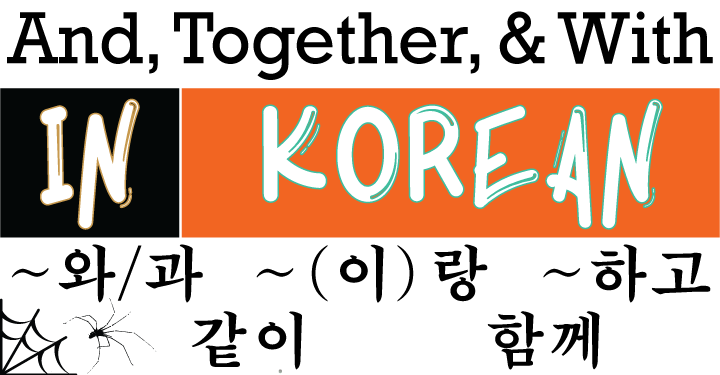
“To Have” in Korean? or “To Not Have” in Korean? That is the Question.
있다 “Have” in Korean 없다 “Not have” in Korean 있다 has countless uses in Korean. The two main uses of 있다 are “Have” and “Be/Exist at a location.” 없다 is the opposite of 있다. In English we have to say “I don’t have.” Korean has a single word for “Not have” which is 없다. This lesson…

~한테서/한테, ~에게서/에게, ~께, ~(으)로부터 in Korean
~한테서/한테, ~에게서/에게 ~께, & ~(으)로부터 in Korean This lesson will teach you the Korean particles ~한테서/한테, ~에게서/에게, ~께, and ~(으)로부터. You may use these Korean particles to make sentences that include the words “To” and “From” someone in Korean. Ex. “I gave juice to my mother.” or “I received a gift from my father.” 가자!…

~에서, ~부터, ~까지 At, From, To, Until in Korean
~에서, ~부터, ~까지 From & To a Time, From & To a Location, At This lesson covers some of the most important Korean particles there are. Learn how to make sentences with: ~에서 “From” a location, “At,” or “In” ~부터 “From” a time ~까지 “To” a location, “To” a time Action Verbs…

3 Indispensable Words: And, Together, & With in Korean
3 Indispensable Words: And, Together, & With in Korean The three indispensable words you will learn in this lesson are “And,” “Together,” & “With” in Korean. They are simple to learn yet extremely useful. Don’t forget to fill out the form at the end of this lesson to receive this lesson as a free PDF so you…
Discover the 7 Usages of (으)로 in Korean
Discover the 7 Usages of (으)로 in Korean This lesson will teach you the seven different usages for (으)로 in Korean. (으)로 is quite the versatile Korean particle and it’s grammar structure is fairly easy. Korean Particle (으)로 Grammar Structure Noun Ending in Consonant + 으로 펜 + 으로 = 펜으로 Noun Ending in Vowel…




